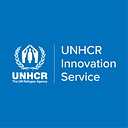Can social science accelerate innovation on behalf of the world’s displaced people?
The United Nations High Commissioner for Refugees’ Innovation Service has launched a yearlong partnership with the newly established Center for Public Interest Communications at the University of Florida College of Journalism and Communications. The partnership will explore how communication strategies rooted in behavioral, cognitive and social science can accelerate the spread of innovative approaches to providing care and protection to the world’s more than 65 million displaced people.
The University of Florida team, which includes faculty from journalism, telecommunication and public relations as well as team members with expertise in sociology, social psychology and pedagogy, will support the Innovation Service as they explore how new approaches to storytelling and communication strategies grounded in research can change perspectives and increase support for displaced people.
The project includes training for UNHCR’s Innovation Service and support for a series of issue briefs that explore the science behind how people form worldviews, how systems thinking could build more inclusive workplaces, a guide for journalists to help them cover refugee issues in ways that minimize backlash and how to gain support for new ideas in complex organizations. The team members will also experiment with new forms of storytelling and engagement.
The UNHCR/University of Florida team will, among other things, post regular updates on Medium.com based on the insights they’ve gained from their work together.
Read more about this partnership here.
The Center for Public Interest Communications is the first of its kind in the United States of America. Launched in February 2018, the Center is designed to study, test and apply the science of strategic communication for social change. The Center works with government agencies, universities, foundations and nonprofits to craft effective campaigns and ensure that science-based communication is built into their program design, strategy and content. The team uses systems thinking, human-centered design and behavioral, cognitive and social science to discover and develop messages and communication strategies that support change efforts.
The UN Refugee Agency’s Innovation Service was established in 2012 to better capture, facilitate, and promote innovation further across the organization. The Innovation Service creates safe spaces for experimentation to take place in UNHCR’s operations, as well as at Headquarters, whilst instilling a future-oriented approach into how we solve problems and create impact for refugee communities. The Innovation Service believes diversity and inclusion are at the center of developing a more robust understanding of innovation that departs from tech-centric models that are often associated with new approaches to humanitarian aid. Through methodologies such as predictive analytics, building competencies of staff through the Innovation Fellowship, and experimenting with science-driven methodologies on how we communicate innovation, the team drives cultural and organizational change throughout UNHCR.
We’re always looking for great stories, ideas, and opinions on innovations that are led by or create impact for refugees. If you have one to share with us send us an email at innovation@unhcr.org
If you’d like to repost this article on your website, please see our reposting policy.
